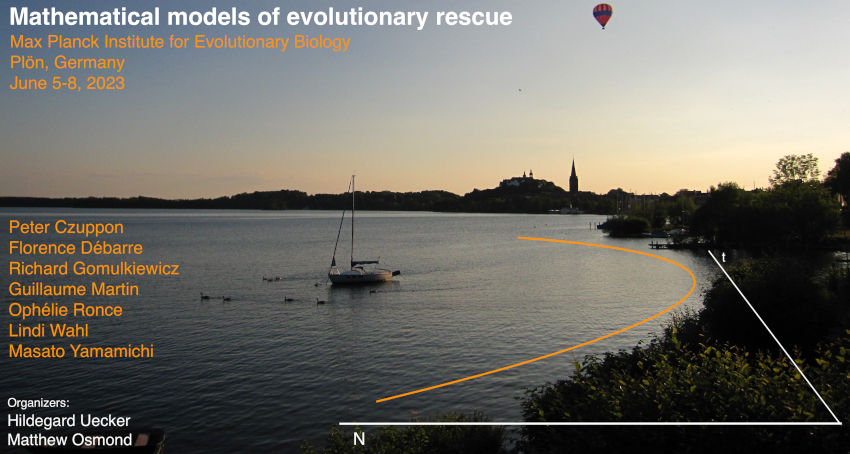Speaker
Description
A prime example of evolutionary rescue is the ability of cancer cells to survive treatment. Aneuploidy, the state of abnormal number of chromosomes in the cell, is hypothesized to increase fitness in the presence of anti-cancer drugs, e.g. due to incomplete pathways targeted by drugs. Aneuploidy is highly prevalent in tumours, and certain anti-cancer drugs attempt to combat cancer by increasing chromosomal instability. Here, we focus on the impact of aneuploidy on the fate of a population of cancer cells. We analysed an evolutionary model in which a population of cancer cells adapt to chemotherapy, focusing on the role of aneuploidy in the evolutionary rescue of the population. We use multi-type branching processes to analyse a two-step evolutionary rescue model, where aneuploidy has intermediate fitness between the sensitive wildtype and the resistant mutant. We estimated the probability that the cancer cell population will survive, how it is affected by the population size, the strength of selection imposed by the drug, and the rate of chromosome gain and validated our results using stochastic simulations. We observe that aneuploidy increases the probability of evolutionary rescue even when it is deleterious. We conclude that aneuploidy can play an important role in helping cancer cell populations escape the effects of treatment.

